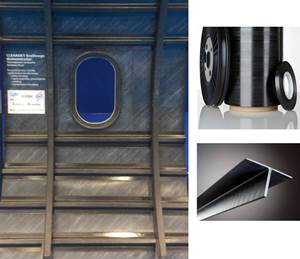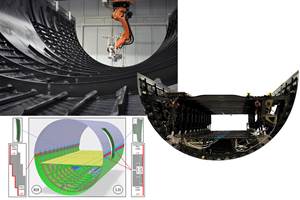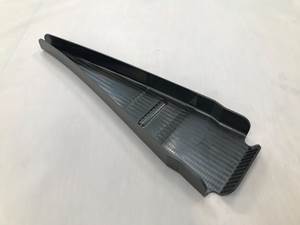From the Publisher - 5/1/2007
I’ve been on the road a fair amount lately and my travels have taken me to some interesting and intriguing events. The first was the annual Aviation Suppliers Conference in Beverly Hills, Calif, which offers a review of economic and market factors for the aircraft industry. Host SpeedNews, a commercial/military
Share
I’ve been on the road a fair amount lately and my travels have taken me to some interesting and intriguing events. The first was the annual Aviation Suppliers Conference in Beverly Hills, Calif, which offers a review of economic and market factors for the aircraft industry. Host SpeedNews, a commercial/military aerospace weekly, lined up speakers from major aircraft manufacturers and their suppliers as well as knowledgeable financial analysts. Among the latter was Heidi Wood, managing director for Morgan Stanley, who predicted an extended growth cycle for commercial aerospace that won’t peak until 2011 or beyond. Her rationale: China and the Middle East are established growth drivers for air travel, and European and American airlines are just now beginning to weigh in with new plane orders.
Speculation ran high on when Boeing and Airbus will redesign their 737 and 320 families — older single-aisle configurations in the 120+ seat range. Meanwhile, Brazil’s Embraer and Canada’s Bombardier Aerospace reportedly intend to pursue the lower end of that market. Bombardier president Gary Scott said his company is developing the C Series of single-aisle, 90- to 149-seat aircraft with all-composite wing and empennage structures and, possibly, a composite fuselage.
Boeing also reported that the 787 Dreamliner is on schedule and rollout is planned for July 8, 2007 (yes, 7/8/7). Robert Avery, Boeing’s VP of 787 services and support, was enthusiastic about composites, reporting that they will require less maintenance and fewer repairs than aluminum. Responding to questions about hail damage, Avery said the 787 is “extremely damage tolerant” and that he has “no doubt that composite material is better in terms of durability” than metals. See HPC’s Boeing 787 Update” on p. 56, this issue.
After a quick trip to Paris for the SAMPE Europe Conference and JEC show (we’ve got highlights from the JEC event on p. 28 and we’ll have a full report next issue), I was off to Salt Lake City, Utah, for the Society of Manufacturing Engineers (SME) first conference devoted entirely to composites, Composites Manufacturing 2007. The first of two keynote speakers was G.B. Bailey, director of manufacturing integration for the F-35 Joint Strike Fighter (JSF) at Lockheed Martin. Bailey reported that the first JSF, the F-35 Lightning II, which made its maiden flight on Dec. 15 last year, will be followed by a second plane, scheduled for first flight this month. According to Bailey, the 36 percent composite F-35’s production rate should be one plane per month by 2008, increasing to one plane per day by 2010.
On day two, the keynoter was Mike Blair, VP of business development at ATK Space Systems and Sensors (Clearfield, Utah), which is doing advanced automated fiber placement (AFP) work. His upbeat message focused on the high level of activity and creativity in the industry, fueled in part by Boeing’s and Airbus’ heavy composites use. He said composites still must meet several challenges, including better throughput on AFP machines to provide a three-year payback on investment; improvements in out-of-autoclave technologies; migration away from “boutique” materials to standardized resins to reduce expenses; and migration away from Invar tooling and toward composite tooling for weight and cost reduction. Ultimately, Blair quipped, he’d like to see 60 lb/hr throughput with an out-of-autoclave process using inexpensive materials on composite tooling. Very funny.
SAMPE’s U.S. Symposium is my next stop. See our SAMPE 2007 preview on p. 30 and I’ll see you in Baltimore.
Related Content
PEEK vs. PEKK vs. PAEK and continuous compression molding
Suppliers of thermoplastics and carbon fiber chime in regarding PEEK vs. PEKK, and now PAEK, as well as in-situ consolidation — the supply chain for thermoplastic tape composites continues to evolve.
Read MoreManufacturing the MFFD thermoplastic composite fuselage
Demonstrator’s upper, lower shells and assembly prove materials and new processes for lighter, cheaper and more sustainable high-rate future aircraft.
Read MoreWelding is not bonding
Discussion of the issues in our understanding of thermoplastic composite welded structures and certification of the latest materials and welding technologies for future airframes.
Read MoreASCEND program update: Designing next-gen, high-rate auto and aerospace composites
GKN Aerospace, McLaren Automotive and U.K.-based partners share goals and progress aiming at high-rate, Industry 4.0-enabled, sustainable materials and processes.
Read MoreRead Next
All-recycled, needle-punched nonwoven CFRP slashes carbon footprint of Formula 2 seat
Dallara and Tenowo collaborate to produce a race-ready Formula 2 seat using recycled carbon fiber, reducing CO2 emissions by 97.5% compared to virgin materials.
Read MorePlant tour: Daher Shap’in TechCenter and composites production plant, Saint-Aignan-de-Grandlieu, France
Co-located R&D and production advance OOA thermosets, thermoplastics, welding, recycling and digital technologies for faster processing and certification of lighter, more sustainable composites.
Read MoreDeveloping bonded composite repair for ships, offshore units
Bureau Veritas and industry partners issue guidelines and pave the way for certification via StrengthBond Offshore project.
Read More












.jpg;maxWidth=300;quality=90)








